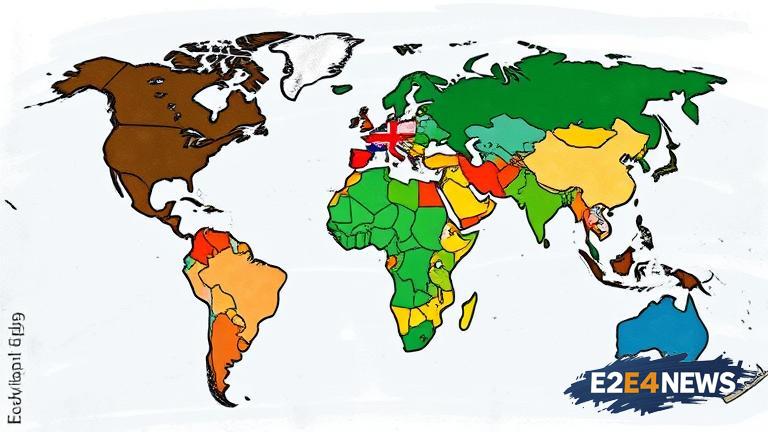There are several countries around the world that are not recognized by the international community, despite having their own governments, economies, and cultures. These countries, often referred to as ‘unrecognized nations,’ exist in a state of limbo, with their sovereignty and legitimacy disputed by the global community. One such example is Taiwan, which is officially known as the Republic of China. Taiwan has its own government, military, and economy, but is not recognized as a sovereign state by the United Nations. Instead, the UN recognizes the People’s Republic of China as the sole legitimate representative of China. Another example is Kosovo, which declared independence from Serbia in 2008. However, its status as a sovereign state is not recognized by Serbia, nor by many other countries, including Russia and China. Similarly, the Western Sahara region in North Africa has been disputed between Morocco and the Polisario Front, a Sahrawi nationalist movement, for decades. The region has its own government, known as the Sahrawi Arab Democratic Republic, but is not recognized by the international community. Other examples of unrecognized nations include Nagorno-Karabakh, a region in the South Caucasus disputed between Armenia and Azerbaijan, and Somaliland, a self-declared state in East Africa that is not recognized by the international community. These countries face significant challenges, including limited access to international aid, trade, and diplomatic relations. Despite these challenges, many of these countries have developed their own unique cultures, economies, and systems of government. For example, Taiwan has a thriving economy and a vibrant democracy, while Kosovo has made significant progress in building its own institutions and infrastructure. However, the lack of international recognition remains a major obstacle to their development and stability. The international community has a complex and often contradictory approach to recognizing sovereign states. On the one hand, the principle of self-determination is enshrined in the UN Charter, which recognizes the right of peoples to determine their own political status. On the other hand, the international community is often reluctant to recognize new states, particularly if they are created through conflict or secession. This has led to a situation where many unrecognized nations are forced to exist in a state of limbo, without access to the benefits and privileges of international recognition. The consequences of non-recognition can be severe, including limited access to international aid, trade, and diplomatic relations. For example, Taiwan is not a member of the UN, and is therefore excluded from many international organizations and agreements. Similarly, Kosovo is not a member of the UN, and has limited access to international aid and trade. Despite these challenges, many unrecognized nations are working to build their own institutions and infrastructure, and to develop their own unique cultures and economies. For example, Somaliland has made significant progress in building its own government and institutions, despite lacking international recognition. Similarly, Nagorno-Karabakh has developed its own system of government and economy, despite being disputed between Armenia and Azerbaijan. In conclusion, the issue of unrecognized nations is complex and multifaceted, with significant implications for international relations, global governance, and human rights. While the international community has a responsibility to recognize and support the sovereignty and self-determination of all peoples, it must also balance this with the need to maintain stability and security in regions where statehood is disputed. Ultimately, the recognition of sovereign states is a matter of international law and diplomacy, and requires a nuanced and context-specific approach that takes into account the unique circumstances and challenges of each unrecognized nation.
Tue. Oct 21st, 2025
